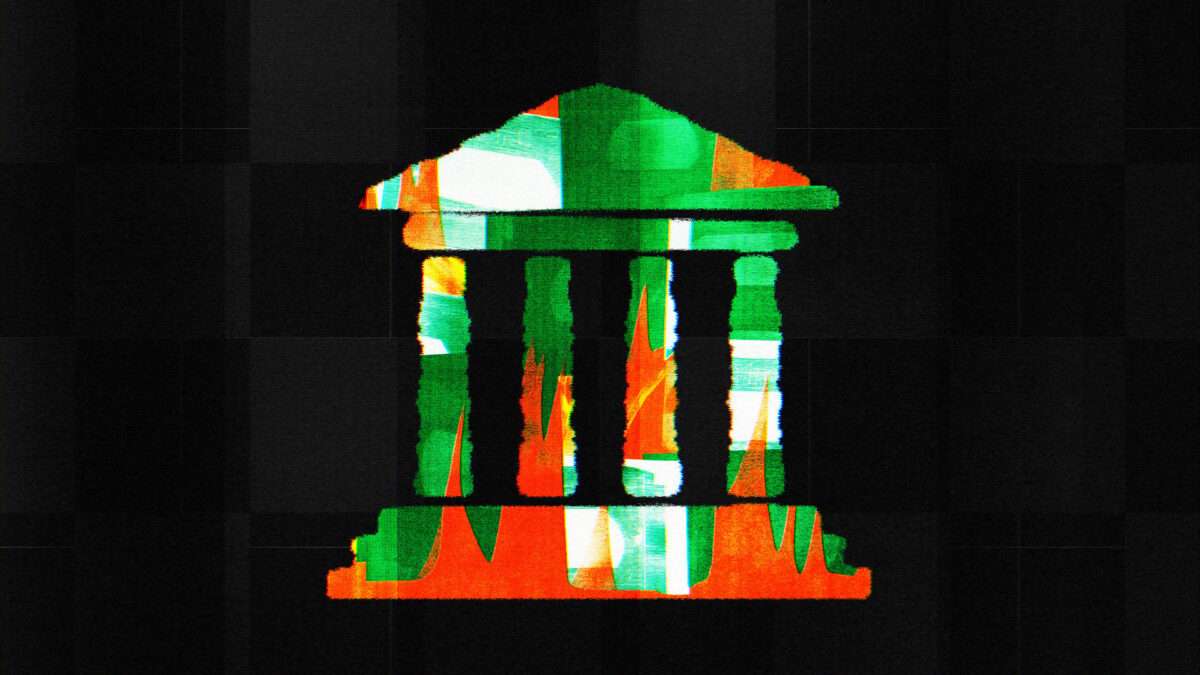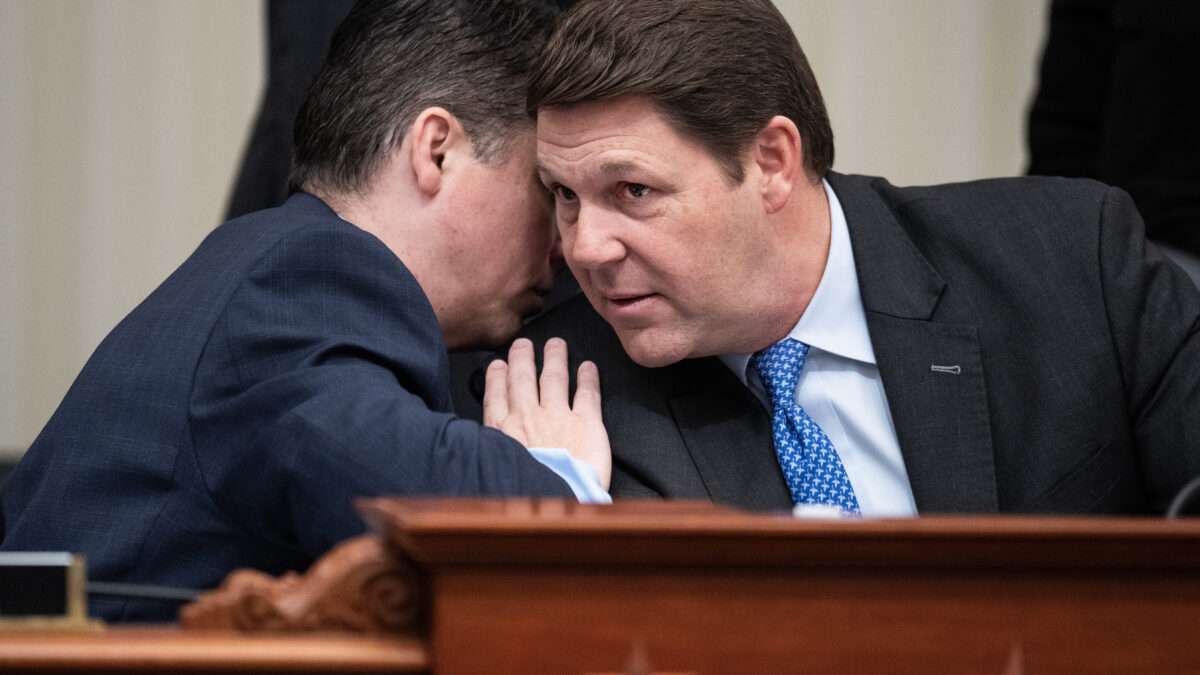Normální zobrazení
-
AmigaGuru's GamerBlog
-
Budget Shooter Operation Serpens Hits PSVR2
Operation Serpens is finally coming to PlayStationVR2 on February 23rd, featuring #Online CO-OP , #Singleplayer, #Horde Mode, #Zombies and much more. Both Physical and digital versions will be available soon. Realism or not, the goal is to have fun. Will you be one of them? Source
-
Latest

-
Federal Budget Deficit Forecast Jumps $400 Billion, Fueled by Student Debt Forgiveness
In 2024, the federal budget deficit is estimated to reach nearly $2 trillion, according to new projections released by the Congressional Budget Office (CBO) this week. In February, the agency predicted that the deficit would only be $1.58 trillion. However, spending increases have caused the projected deficit to increase by $400 billion, a staggering 27 percent hike. According to the CBO, 80 percent of the spike in the deficit can be blamed on f
Federal Budget Deficit Forecast Jumps $400 Billion, Fueled by Student Debt Forgiveness

In 2024, the federal budget deficit is estimated to reach nearly $2 trillion, according to new projections released by the Congressional Budget Office (CBO) this week. In February, the agency predicted that the deficit would only be $1.58 trillion. However, spending increases have caused the projected deficit to increase by $400 billion, a staggering 27 percent hike.
According to the CBO, 80 percent of the spike in the deficit can be blamed on four sources of government spending.
The largest source, responsible for $145 billion of the increase, is changes to the federal student loan program that have resulted in massive waves of federal student loan forgiveness and increased forgiveness going forward.
Second, the CBO's report details how the costs for "deposit insurance have increased by about $70 billion because the Federal Deposit Insurance Corporation (FDIC) is not recovering payments it made when resolving bank failures in 2023 and 2024 as quickly as CBO previously anticipated."
Third, an additional $60 billion in cost increases came from additional legislation. And lastly, $50 billion in increased spending came from higher-than-expected Medicaid costs.
The long-term outlook for the budget deficit has increased too. In February, the CBO estimated that in 2034, the deficit would climb to $2.5 trillion. Its latest estimate now places that number as over $2.8 trillion.
"For the 2025–2034 period, CBO now projects that if current laws generally remained unchanged, the cumulative deficit would be $22.1 trillion. That amount is $2.1 trillion (or 10 percent) more than the $20.0 trillion the agency projected this past February," reads the CBO's report. "Measured in relation to the size of the economy, federal debt at the end of 2034 is now projected to equal 122 percent of gross domestic product (GDP); in February, debt at the end of that year was projected to equal 116 percent of GDP."
If the deficit continues to increase as the CBO predicts, the outcome could be disastrous.
"As debt grows unabated, there is the risk of a sudden loss of confidence in bond markets, with investors demanding much higher interest rates that could trigger a debt doom loop and broader fiscal crisis," Cato Institute researchers Romina Boccia and Dominik Lett warned this week. "Congress and the Biden administration should cut spending now while the economy is growing and conditions are favorable for deficit reduction, alleviating pressure on interest rates and the federal debt to grow, and before a fiscal crisis forces their hands."
The post Federal Budget Deficit Forecast Jumps $400 Billion, Fueled by Student Debt Forgiveness appeared first on Reason.com.

-
Latest

-
A Bipartisan Tax Hike Won't Fix This Deficit
The Republican chairman of the House Budget Committee made news recently by announcing that if his party is serious about changing the fiscal path we are on, they'll have to consider raising taxes. Politics is about compromise, so the chairman is right. Every side must give a little. However, "putting taxes on the table" is not as simple a fix to our debt problems as some think. Looking at recent Congressional Budget Office reports, one can have
A Bipartisan Tax Hike Won't Fix This Deficit

The Republican chairman of the House Budget Committee made news recently by announcing that if his party is serious about changing the fiscal path we are on, they'll have to consider raising taxes. Politics is about compromise, so the chairman is right. Every side must give a little. However, "putting taxes on the table" is not as simple a fix to our debt problems as some think.
Looking at recent Congressional Budget Office reports, one can have no doubts about the fiscal mess. Annual deficits of $2 trillion will soon be the norm. Interest payments on the debt will exceed both defense and Medicare spending this year and become the government's largest budget item. With no extra revenue available, the Treasury will have to borrow money to cover these expenses. Meanwhile, we're speeding toward a Social-Security-and-Medicare fiscal cliff that we've known of for decades, and we'll reach it in only a few years.
Talking about the need for a fiscal commission to address Washington's mountain of debt, the committee chair, Rep. Jodey Arrington (R–Texas), told Semafor, "The last time there was a fix to Social Security that addressed the solvency for 75 years, it was Ronald Reagan and Tip O'Neill, and it was bipartisan. It had revenue measures and it had program reforms. That's just the reality." He made these comments after some people warned that a fiscal commission is a gateway only to raising taxes.
I understand the worry. That's what the most recent deficit reduction commission tried to do. And while I don't believe this is what Arrington is planning, I offer a warning to the chair and to the future commission: If the goal is truly to improve our fiscal situation, as defined by reducing the ratio of debt to gross domestic product (GDP) or reducing projected gaps between revenue and spending, increasing tax revenue should be limited to the minimum politically possible.
For one thing, our deficits are the result of excessive promises made to special interests—mostly seniors in the form of entitlement spending—without any real plans to pay. The problem is constantly growing spending, not the lack of revenue and taxes. The common talking point from the left that rich people don't pay their fair share of taxes is a distraction. Not only is our tax system remarkably progressive, but there are not enough rich people to fleece to significantly reduce our future deficits.
Furthermore, the work of the late Harvard economist Alberto Alesina has established that the best way to successfully reduce the debt-to-GDP ratio is to implement a fiscal-adjustment package based mostly on spending reforms. A reform mostly geared toward tax increases will backfire as the move will slow the economy in the short and longer terms, causing it to ultimately fail to raise enough revenue to reduce the debt relative to GDP. Legislators, unfortunately, have made this mistake many times without learning any lesson—at least until the deal that was cut in 1997.
As a 2011 New York Times column by Catherine Rampell reminded us, until then, all deficit-reduction deals were very tax-heavy. What the article didn't mention is that they failed to reduce the deficit. What distinguishes the 1997 deal is that it cut both spending and taxes. The result was the first budget surplus in decades helped by a fast-growing economy. Now, this lesson doesn't mean that a fiscal commission must cut taxes, but it does caution against attempting to reduce the debt largely by raising taxes.
Another risk looms in the idea of a tax-and-spending compromise; that the tax increases will be implemented while the spending cuts won't. We have many examples of this pattern, but I'll recount just one: In 1982, President Ronald Reagan made a deal with Congress (the Tax Equity and Fiscal Responsibility Act) which would have raised $1 in revenue for every $3 in spending cuts.
There were tax hikes, indeed. But instead of spending cuts, Reagan got lots of spending increases. Remembering the story years later in Commentary magazine, Steven Hayward wrote, "By one calculation, the 1982 budget deal actually resulted in $1.14 of new spending for each extra tax dollar."
The moral of this story is that putting revenue on the table to reduce the debt has a bad track record. As such, the chairman, who I believe is serious about putting the U.S. on a better fiscal path, will have to be careful about whatever deal is made.
COPYRIGHT 2024 CREATORS.COM.
The post A Bipartisan Tax Hike Won't Fix This Deficit appeared first on Reason.com.

-
Latest

-
Republicans Use Fuzzy Math To Claim Large FBI, ATF Cuts in Budget Bill
Earlier this week, lawmakers on the House and Senate Appropriations Committees put forward six spending bills that would fund the government through the end of the year. In a press release, Republicans on the House committee bragged that the bills would "save taxpayers more than $200 billion over the next ten years"—a period of time over which the Congressional Budget Office predicts the national debt will expand by $20 trillion and eclipse the n
Republicans Use Fuzzy Math To Claim Large FBI, ATF Cuts in Budget Bill

Earlier this week, lawmakers on the House and Senate Appropriations Committees put forward six spending bills that would fund the government through the end of the year. In a press release, Republicans on the House committee bragged that the bills would "save taxpayers more than $200 billion over the next ten years"—a period of time over which the Congressional Budget Office predicts the national debt will expand by $20 trillion and eclipse the nation's gross domestic product.
Some of those savings come from cuts to federal law enforcement agencies, including the FBI and the Bureau of Alcohol, Tobacco, Firearms, and Explosives (ATF). Unfortunately, even those cuts are much more modest than they appear.
In their press release, House Republicans boasted that the appropriations package "utilizes the power of the purse to address the weaponization of the growing bureaucracy within the FBI and ATF." Specifically, they do this by "reversing [ATF's] anti-Second Amendment overreach…by significantly reducing its overall funding by $122 million, a 7% decrease" from 2023, as well as holding the FBI "accountable for targeting everyday Americans by reducing its overall operating budget by $654 million and cutting its construction account by 95%."
But these already-meager cuts don't involve very much actual cutting.
The FBI's salaries and expenses totaled over $10 billion in 2023, and it requested over $11 billion for 2024; the appropriations bill would grant $10.6 billion—a bit less than the FBI wanted but only about one-half percent less than last year's budget and certainly nothing approaching the 6 percent cut Republicans bragged about.
Republicans get around this with some tricky math: In a 2022 omnibus spending bill, the Bureau received $652 million toward the construction of a campus in Huntsville, Alabama. Republicans include the $652 million when touting a 6 percent cut, even though the money apportioned for salaries and expenses barely budged.
In fact, when Republicans bragged about "cut[ting] the FBI's construction account by $621.9 million"—for a whopping 95 percent decrease—that precipitous drop uses the one-time Huntsville cash as its starting point. Besides, the FBI only asked for a $61.9 million construction budget, which would have constituted a 90 percent decrease on its own.
Meanwhile, the ATF received $1.672 billion for salaries and expenses in 2023, while the appropriations bill would apportion $1.625 billion—a decrease of just 2.8 percent, not the 7 percent drop House Republicans claimed. That supposed 7 percent cut of $122 million comes from adding the $47 million cut in salaries and another $75 million cut from construction costs. The ATF did not request any construction money in its 2024 budget, so boasting that this a cut is laughable. Just like with the FBI, judging salaries and expenses in an apples-to-apples comparison yields a much more modest cut.
Any sort of fiscal discipline should be welcomed, of course. But it's not like Republicans are dedicated to pruning federal law enforcement agencies across the board.
"The Drug Enforcement Administration was an outlier in the bill, as it would receive a modest funding bump," writes Eric Katz at Government Executive. The bill would fund the DEA with $2.57 billion; when accounting for revenue from diversion control programs, Republicans say the department would receive "$42.4 million more" than it did in 2023.
The bill also directs not only the DEA but also the FBI to prioritize the policing of fentanyl. The FBI is directed "to allocate the maximum amount of resources" to target the "trafficking" of fentanyl and other opioids. There's no sign of any recognition that prohibition is exactly why fentanyl has proliferated in the first place and that harm reduction measures would be much safer and more effective than a law enforcement solution.
In fact, Republicans openly state in their press release that the cuts are not intended to save taxpayers money, noting that the bill "right-siz[es] agencies and programs and redirects that funding to combat fentanyl and counter the People's Republic of China."
Clearly, when the federal government consistently spends much more than it takes in, there is room to cut and an imperative to do so. It's unfortunate, then, that Republican lawmakers are bragging about plans to cut $200 billion over 10 years—1 percent of the anticipated federal debt accrued in that time—and it's even more disturbing to know that they're fudging the numbers to even get that much.
The post Republicans Use Fuzzy Math To Claim Large FBI, ATF Cuts in Budget Bill appeared first on Reason.com.

